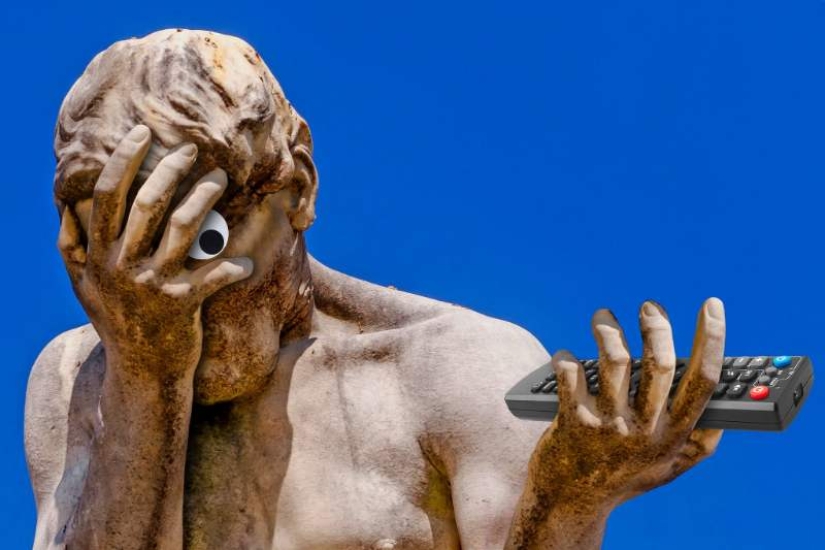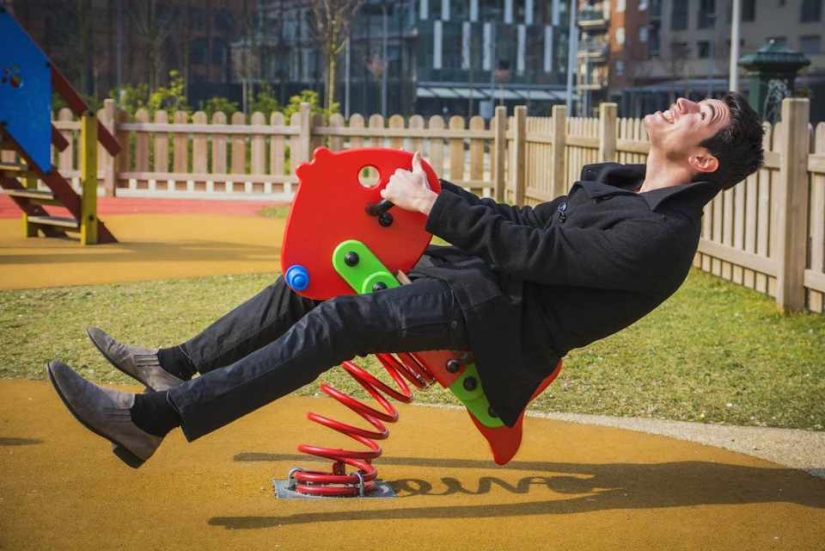The Guilty Pleasure Phenomenon: Why We Are Ashamed of What We Like
Do you watch stupid TV shows, read Dontsova's books or collect cigarette packs, but do it secretly, fearing condemnation? Don't worry, you are not alone! These little weaknesses are an example of what is called guilty pleasure. What does it mean and is it worth fighting? Let's look at some simple life examples.

Guilty pleasure ("guilty pleasure") - is translated from English as "guilty, shameful pleasure". This term refers to a social phenomenon when a person hides things that bring him joy. For example, he may be a respected candidate of mathematical sciences, but in the evenings he enjoys watching "The Battle of Psychics". Or hold a leadership position, and at home, away from prying eyes, sing karaoke songs of "Sektor Gaza". Such hobbies often seem too frivolous to others, and people prefer to keep them a secret so as not to undermine their image.

Fear of being judged isn’t the only reason people hide their guilty pleasure. Social pressure is a major factor. Imagine that everyone at your work place unanimously thinks the Game of Thrones finale was a flop. Admitting that you actually enjoyed it can be extremely difficult, because it means going against the majority opinion.

Going against the majority opinion is scary. Interestingly, research has shown that the low ratings of many movies, shows, and video games are often the result of pluralistic ignorance. This is when people form an opinion about a product based not on their own experience, but on online reviews or stories from friends. It’s a classic case of “I haven’t read it, but I condemn it.” And in such an atmosphere, admitting your sympathy for something “disapproved of” becomes even more difficult.

Another reason why people are ashamed of their hobbies is fashion. And this reference point is extremely reliable. History knows many examples when something considered frivolous or mediocre eventually became a classic. For example, in the 19th century in the USA, Shakespeare's poems were not perceived as great works. They were considered ordinary "everyday reading" for all strata of the population, convenient for while away the time. Who would have thought then that Shakespeare would become a symbol of world literature? Therefore, perhaps what is unpopular or condemned today may become a trend tomorrow.
Unfortunately, people tend to feel guilty for the most harmless hobbies. Philosophers Chris Goffin and Florian Cova studied the phenomenon of guilty pleasure and suggested that shame or embarrassment play a significant role in it. As is known, shame is an emotion of non-conformity to the generally accepted image.

We are afraid of not living up to social expectations. Looking at memes online is a waste of time, since it does not give a person any intellectual or career growth. And everyone around us trumpets success and awareness. Of course, in this case, it is best not to advertise your passion. What if those around you consider you a frivolous and idle type?
Interestingly, the very reasons for the emergence of guilty pleasure go back to the distant past. According to associate professor at the University of Wisconsin Sami Schalk, it is not our fault that we are ashamed of our joys. All this is connected with the historical religious legacy: in those times, many pleasant things were considered shameful, and sometimes even sinful. This view has been deposited in our culture, shaping the attitude towards innocent pleasures even centuries later.
Most people with guilty pleasure are not ready to give them up, despite the possible feeling of shame. Firstly, such activities bring pleasure, and secondly, they help to distract from the daily routine. The main thing is to remember that such hobbies are a personal matter for everyone. They definitely have the right to exist if they do not pose a danger to others.

To stop feeling guilty about guilty pleasures, the best way is to acknowledge them. No, you don’t have to make a public confession with a banner saying “I love Peppa Pig.” It’s enough to honestly say to yourself, “Yes, I like it, and there’s nothing wrong with that.” It’s a normal human desire to have fun, and there’s nothing shameful about it. By accepting your “secret pleasures,” you can get rid of unnecessary shame and simply enjoy what makes you happier.
Publicized guilty pleasures can change your life. For example, they will help you find like-minded people, because there are probably many people with the same hobbies. In addition, hobbies can become a way to take care of yourself - to spend carefree time doing your favorite activity, restoring your peace of mind.
The phenomenon of guilty pleasure shows how much stereotypes and expectations of others influence us. Instead of being ashamed of your hobbies, you should learn to accept them and enjoy them. After all, happiness is not about conforming, but about being yourself.
What are your guilty pleasures?
Recent articles

It's high time to admit that this whole hipster idea has gone too far. The concept has become so popular that even restaurants have ...

There is a perception that people only use 10% of their brain potential. But the heroes of our review, apparently, found a way to ...

New Year's is a time to surprise and delight loved ones not only with gifts but also with a unique presentation of the holiday ...